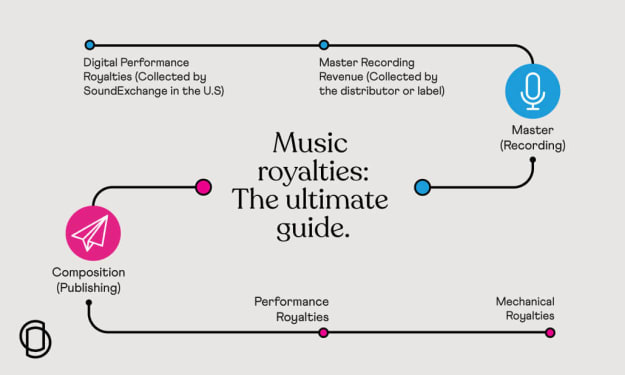Exploring the Basics of Artificial Intelligence: What is AI?
Understand the Fundamentals of AI: A Comprehensive Overview of Artificial Intelligence

Exploring the Basics of Artificial Intelligence
In the world of technology, artificial intelligence (AI) is a hot topic. AI is a broad field that is attracting attention from tech companies, researchers, and academics for its potential to revolutionize our lives. But what is AI, really? In this blog, I will explore the basics of AI, including its types, uses, benefits, and challenges.
I will also discuss the intersecting technologies of AI, such as machine learning and big data. Finally, I will provide resources for readers who are looking to learn more about AI.
Introduction to Artificial Intelligence
AI is a technology that enables machines to perform tasks that normally require human intelligence. AI is a broad term that covers many different types of technologies, such as machine learning, natural language processing, robotics, and more. AI is being used in a wide range of applications, from self-driving cars to automated customer service.
The development of AI has been spurred on by advances in computing power, data storage, and algorithms. AI technology is being used to solve problems in a variety of fields, from healthcare to finance. AI has the potential to transform our lives in ways we can only imagine.
What is Artificial Intelligence (AI)?
At its core, AI is the science of making machines think and act like humans. AI systems can be programmed to process data, recognize patterns, and make decisions based on the information they receive.
AI systems are designed to learn from the data they are fed and can adapt to changing conditions. AI has the potential to make decisions faster and more accurately than humans.
AI systems are used in a variety of applications, from gaming to medicine. AI can be used to automate mundane tasks, such as scheduling meetings or organizing data. AI can also be used to improve customer service and increase efficiency.
Types of Artificial Intelligence
There are several different types of AI. These include:
Machine Learning: Machine learning is a type of AI that enables systems to learn from data. Machine learning algorithms are used to identify patterns in data and make predictions about future events.
Natural Language Processing (NLP): NLP is a type of AI that enables computers to understand and interpret human speech and text. NLP is used in a variety of applications, from automated customer service to natural language search.
Computer Vision: Computer vision is a type of AI that enables machines to recognize and interpret images. Computer vision systems are used in a variety of applications, including facial recognition, object recognition, and autonomous vehicles.
Robotics: Robotics is a type of AI that enables machines to interact with their environment. Robotics is used in a variety of applications, from manufacturing to space exploration.
Uses of Artificial Intelligence
AI has a wide range of applications, from healthcare to finance. AI can be used to automate mundane tasks, such as scheduling meetings or organizing data. AI can also be used to improve customer service and increase efficiency.
In healthcare, AI can be used to diagnose diseases and predict outcomes. AI can also be used to develop personalized treatment plans and monitor patients. In finance, AI can be used to detect fraud and automate financial transactions. AI can also be used to develop personalized investment strategies.
AI is also being used in education. AI can be used to create personalized learning plans and assess student performance. AI can also be used to automate grading and provide feedback to students.
Benefits of Artificial Intelligence
AI has a number of benefits, from increased efficiency to improved accuracy. AI can automate mundane tasks and free up time for more creative work. AI can also improve accuracy by reducing errors and providing more consistent results.
AI can also help to reduce costs. AI can automate tasks that would otherwise require manual labor, reducing the need for additional staff and lowering costs. AI can also be used to identify cost savings and optimize operations.
AI can also help to improve customer service. AI can be used to automate customer service tasks, such as answering common questions or providing recommendations. AI can also be used to identify customer needs and provide personalized experiences.
Challenges of Artificial Intelligence
Despite the potential benefits of AI, there are a number of challenges that must be addressed. AI systems can be difficult to understand and debug, making it difficult to ensure that they are working correctly. AI systems can also be vulnerable to malicious attacks, creating a risk of data breaches or manipulation.
AI systems can also create ethical and legal issues. AI systems can make decisions that have unintended consequences, such as identifying bias or making inaccurate predictions. AI systems can also be used to violate privacy or manipulate public opinion.
AI systems can also be expensive to develop and maintain. AI systems require a large amount of data to train and can be difficult to scale. AI systems can also be resource-intensive, requiring powerful computers and specialized hardware.
AI and Machine Learning
AI and machine learning are closely related technologies. Machine learning is a type of AI that enables systems to learn from data. Machine learning algorithms are used to identify patterns in data and make predictions about future events.
Machine learning is used in a variety of applications, from healthcare to finance. Machine learning can be used to diagnose diseases, detect fraud, and automate financial transactions. Machine learning can also be used to develop personalized treatment plans and investment strategies.
AI and Big Data
AI and big data are also closely related technologies. Big data is a large collection of data that can be used to identify patterns and make predictions. Big data can be used to improve the accuracy of AI systems and enable them to make more informed decisions.
Big data is used in a variety of applications, from healthcare to finance. Big data can be used to identify trends and improve decision-making. Big data can also be used to develop personalized treatment plans and investment strategies.
AI and Robotics
AI and robotics are also closely related technologies. Robotics is a type of AI that enables machines to interact with their environment. Robotics is used in a variety of applications, from manufacturing to space exploration.
Robotics can be used to automate mundane tasks, such as sorting and packing items. Robotics can also be used to improve safety and accuracy, as robots can be programmed to follow specific instructions. Robotics can also be used to improve customer service, as robots can be programmed to respond to customer requests.
Resources for Learning More About Artificial Intelligence
If you’re interested in learning more about AI, there are a number of resources available. Coursera offers a range of courses on AI, from beginner to advanced. edX also offers a range of courses on AI, from introductory to advanced.
The OpenAI website is a great resource for learning about AI. The website contains a library of resources, including tutorials, research papers, and publications. The website also hosts a range of events, such as hackathons and workshops.
The Machine Learning subreddit is also a great resource for learning about AI. The subreddit is a forum for discussing AI, sharing resources, and asking questions. The subreddit also hosts a range of events, such as hackathons and workshops.
Conclusion
In this blog, we explored the basics of AI, including its types, uses, benefits, and challenges
. We also discussed the intersecting technologies of AI, such as machine learning and big data. Finally, we provided resources for readers who are looking to learn more about AI.
AI has the potential to revolutionize our lives in ways we can only imagine. As AI technology continues to advance
, it will be interesting to see how it will be applied in various fields. With the right resources and guidance, anyone can learn more about AI and its potential applications.
About the Creator
Enjoyed the story? Support the Creator.
Subscribe for free to receive all their stories in your feed. You could also pledge your support or give them a one-off tip, letting them know you appreciate their work.





Comments
There are no comments for this story
Be the first to respond and start the conversation.